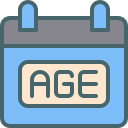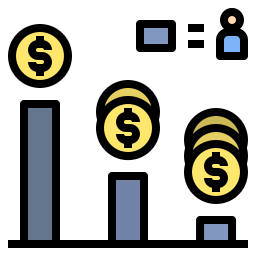Rhode Island Senior Assistance Programs, Benefits, and Grants (2026)
 Senior Population: 296,330
Senior Population: 296,330 Median Age: 70.2
Median Age: 70.2 Veterans: 10.5%
Veterans: 10.5% Disability: 28.2%
Disability: 28.2% Renters: 27.9%
Renters: 27.9% With Social Security Income: 73.6%
With Social Security Income: 73.6% With Food Stamp/SNAP Benefits: 14.6%
With Food Stamp/SNAP Benefits: 14.6% Below 100% of Poverty Level: 11.5%
Below 100% of Poverty Level: 11.5%Last updated:
If You Need Emergency Help
- Call 911 if you or someone else is in immediate danger.
- For a mental health crisis, call or text 988 or use the 988 Lifeline Chat at 988lifeline.org.
- For fast connections to food, shelter, utilities help, and local services, call 2-1-1 or visit 211 Rhode Island: Find help on 211ri.org.
- Suspect elder abuse, neglect, or financial exploitation? If it’s urgent, call 911. Otherwise, contact the Rhode Island Office of Healthy Aging (OHA) via their main site and Protective Services resources: Rhode Island Office of Healthy Aging.
- Medicare questions or plan issues: call 1-800-MEDICARE (1-800-633-4227) or Rhode Island’s SHIP counseling through OHA: Get Medicare help in RI (SHIP).
- Report scams and fraud targeting older adults: DOJ Elder Fraud Resources.
Key Takeaways
- Rhode Island has one statewide Office of Healthy Aging (OHA) that connects older adults with benefits, legal protections, caregiving support, and unbiased Medicare counseling. Start here: OHA – Programs and Help.
- For health coverage and long-term care at home or in a facility, contact the RI Executive Office of Health and Human Services (EOHHS) for Medicaid and LTSS: EOHHS – Medicaid & LTSS.
- Help with rent, utilities, home repairs, and food is available through state and federal programs, often delivered locally by non-profits and community agencies. A single call to 2-1-1 can route you to the right door: 211 Rhode Island.
- If you have Medicare, you may qualify for help paying your premiums and drug costs through the Medicare Premium Payment Program (MPPP) and Low-Income Subsidy (Extra Help). Get free counseling via SHIP: Medicare counseling (SHIP).
- For renters and homeowners on fixed incomes, key programs include Section 8 vouchers, home repair assistance, LIHEAP energy help, Weatherization, and USDA home safety grants. See the Housing, Home Repair, and Utilities sections below.
- There is solid support for digital access and telehealth (devices, training, and lower-cost phone/internet) through OHA’s DigiAGE partners, Lifeline, and library Wi‑Fi. See: OHA DigiAGE partners, Lifeline overview.
- Special help exists for LGBTQ+ elders, veterans, disabled seniors, tribal members, and rural residents. See the “Inclusive Supports” section for tailored resources and tips.
- Eligibility rules and funding change. Always confirm details with the official agency linked in this guide before you apply.
How to Use This Guide
- Skim the tables for quick options.
- Go to the sections that match your need (healthcare, housing, utilities, food, transportation).
- Use the “How to apply” links. If you’re stuck, call 2-1-1 to get a live person who can connect you.
Rhode Island Snapshot: Seniors at a Glance
According to the American Community Survey (ACS) 2023:
- 65+ population: 212,376 (19.4%)
- With a disability: 32.5%
- With SNAP benefits: 12.8%
- Below 100% of the poverty level: 11.8%
Source: U.S. Census Bureau, American Community Survey 2023 (see data on data.census.gov).
Quick Start: Popular Programs and Where to Apply
| Need | Program | What it helps with | Who it helps | Where to apply / learn more |
|---|---|---|---|---|
| Health coverage | Medicaid & LTSS (EOHHS) | Medical, long-term care, in-home supports | Low-income seniors; those needing daily care support | EOHHS – Medicaid & LTSS |
| Medicare costs | Medicare Premium Payment Program (MPPP) | Medicare Part A/B premiums, some cost-sharing | Low- to moderate-income Medicare beneficiaries | MPPP program page |
| Medicare choices | SHIP counseling | Free, unbiased Medicare help | All Medicare-eligible | Get Medicare help (SHIP) |
| Prescriptions | RIPAE (OHA) | Help with drug costs; complements Part D | 65+ with qualifying income | Drug cost assistance (RIPAE) |
| Rent | Section 8/HCV | Monthly rent subsidy | Low-income seniors | HUD: Renting in Rhode Island |
| Homelessness prevention | Prevention & Rapid Re-Housing | Short-term rent & stabilization | At risk of homelessness | RI OHCD – Homelessness |
| Home repairs | USDA Section 504 Grants | Critical health/safety repairs | Very low-income homeowners age 62+ | USDA 504 Repairs |
| Home repairs | RI Housing & partners | Home improvement assistance | Income-eligible homeowners | RI home repair options |
| Heat & utilities | LIHEAP | Heating bills and crisis heat help | Income-eligible households | RI LIHEAP info & apply |
| Water bills | LIHWAP | One-time water/sewer help; crisis | Income-eligible households | RI Energy & Water Assistance |
| Meals | Ocean State Senior Dining | Congregate or home-delivered meals | 60+ and spouses/caregivers | Senior Dining sites |
| Meals | Meals on Wheels of RI | Daily home-delivered meals & check-ins | Homebound older adults | Meals on Wheels RI |
| Transportation | Non-emergency medical rides (MTM) | Rides to covered medical services | Medicaid members; some 60+ | EOHHS Transportation Services |
| Bus discounts | RIPTA Reduced Fare Bus Pass | Free/reduced fare on buses | 65+ and adults with disabilities | RIPTA Reduced Fare |
Tip: If a link is confusing or you can’t find your local office, dial 2-1-1. They’ll look it up with you.
Healthcare and Long-Term Care
EOHHS Medicaid and LTSS (Long-Term Services & Supports)
- What it is: Rhode Island’s Medicaid covers healthcare and long-term care at home, in assisted living, or in nursing facilities, depending on your needs. LTSS can include help with bathing, dressing, meals, adult day health, and more.
- Who it helps: Older adults with limited income and assets who meet medical and functional criteria. Spousal “asset protection” rules may apply if only one spouse needs care.
- Realities: Eligibility rules are detailed and change yearly. Application reviews can take time, and some services have waitlists. Get help early if you think you’ll need care soon.
- How to apply: Contact EOHHS for eligibility screening and application options. You can also get free help from SHIP or legal aid if you’re overwhelmed.
- Learn more: EOHHS – Medicaid & LTSS overview
Medicare Premium Payment Program (MPPP)
- What it is: Rhode Island helps eligible Medicare beneficiaries pay Part A and/or Part B premiums and sometimes co-pays/deductibles through state-administered Medicare Savings Programs.
- Who it helps: Seniors on Medicare with limited income and assets. These programs coordinate with Social Security and Medicare.
- Tip: If you get MPPP, you may automatically qualify for Part D Extra Help (Low‑Income Subsidy).
- How to apply: See eligibility and application steps at MPPP official page. For counseling: SHIP at OHA.
SHIP (State Health Insurance Assistance Program)
- What it is: Free, unbiased, one‑on‑one help with Medicare choices, billing, appeals, drug plans, and savings programs.
- Who it helps: Anyone eligible for Medicare and caregivers.
- How to get help: Book a session through OHA: Medicare help (SHIP).
Prescription Drug Help (RIPAE and Part D)
- RIPAE: State help that can offset some prescription drug costs for eligible 65+ residents; it is designed to work alongside Medicare Part D. See current details at RIPAE – Drug Cost Assistance.
- Extra Help (Low-Income Subsidy): A federal program that cuts Part D premiums and co‑pays if you qualify; apply through Social Security. Info via Medicare: Medicare: Get Extra Help.
Dental Care
- Options: Some Medicaid enrollees and Medicare Advantage plans include dental. Community dental clinics and dental schools may offer reduced fees. Start with SHIP and your plan’s member services.
- Tip: Appointments can book out months. Ask about waitlists and sliding-scale fees.
- General info portal: EOHHS – Medicaid and Medicare coverage basics.
Keeping Up with Telehealth and Technology (DigiAGE)
- What it is: OHA partners to help older adults access devices, training, and connectivity so you can see your doctor by video, manage prescriptions, and stay in touch.
- Device access: RI Adaptive Telephone Equipment Loan (ATEL) provides adaptive phones/devices to eligible residents with hearing/speech needs. See also RAZ Mobility accessibility info.
- Connectivity: Lifeline can lower phone/internet costs for low-income households: Check Lifeline eligibility. Many libraries offer free Wi‑Fi; ask your local branch or dial 2‑1‑1 to find locations.
- Training: URI Cyber‑Seniors and Senior Planet courses offer senior‑friendly tech help.
Comparing Health Coverage Options (At a Glance)
| Option | What it covers | Good fit for | Notes |
|---|---|---|---|
| Original Medicare (A & B) | Hospital and outpatient care | Most seniors 65+ | Add Part D for drugs; add Medigap or Advantage for cost protection |
| Medicare Advantage (Part C) | A/B plus extras (often drugs, dental/vision) | Those wanting one plan | Check networks and prior authorizations |
| Medicaid (EOHHS) | Doctor/hospital care, LTSS | Low-income and medically needy seniors | Can work with Medicare (dual-eligibility) |
| Medicaid LTSS | In-home, assisted living, nursing home | Those needing daily care support | Functional and financial criteria apply |
| MPPP (Medicare Savings) | Helps pay Medicare premiums, cost-share | Lower-income Medicare adults | Often triggers Part D Extra Help |
| SHIP counseling | Guidance for all the above | Anyone with Medicare | Free, unbiased help via OHA |
Sources: Medicare.gov, EOHHS – Medicaid, OHA – SHIP.
Housing and Rent Assistance
Housing Choice Voucher Program (Section 8)
- What it is: A federal voucher that pays a portion of your rent to a private landlord who accepts vouchers.
- Who it helps: Low-income older adults and people with disabilities; waitlists are common.
- How to apply: Contact local public housing authorities and Rhode Island Housing; learn the basics at HUD: Renting in Rhode Island.
- Reality check: Expect waiting lists. Keep paperwork current and respond to letters fast to keep your place in line.
Homelessness Prevention & Rapid Re‑Housing
- What it is: Short-term help to prevent eviction or to quickly re‑house homeless households, plus case management.
- Who it helps: Households at risk of homelessness or experiencing homelessness.
- Apply/learn more: RI Office of Housing & Community Development – Homelessness. You can also call 2‑1‑1 for coordinated entry.
State Affordable Housing Initiatives
- Building Homes Rhode Island: State-funded creation of affordable apartments and modest homes. Info: Building Homes RI.
- Neighborhood Opportunities Program (NOP): Subsidizes rents for low-income seniors and people with disabilities. Overview: OHCD Programs.
Tips for Renters
- Keep copies of your lease, payment receipts, and any notices.
- If you receive a court summons for eviction, do not ignore it. Seek legal help right away through Rhode Island Legal Services or call 2‑1‑1.
Home Repair, Safety, and Accessibility
USDA Single Family Housing Repair Loans & Grants (Section 504)
- What it is: Grants (up to a federal cap) and loans to fix health/safety hazards (roof leaks, wiring, ramps).
- Who it helps: Very low‑income homeowners age 62+ (grants). Loans are available for other income‑eligible homeowners.
- Important: Grants may need to be repaid if you sell the home within a set period. Income and ownership rules apply.
- Apply: USDA 504 Repair Program.
Rhode Island Home Repair Assistance
- What it is: Programs that assist with emergency fixes, code issues, and accessibility.
- Where to start: HUD’s Rhode Island home repair page points to local options and contacts: RI Home Repair Resources.
- Tip: Ask your city/town about CDBG‑funded home repair or rehab programs for seniors.
Weatherization and Energy Efficiency
- Weatherization (WAP): Helps with insulation, air sealing, and safer heating systems for income‑eligible households. In RI, outreach typically flows through local community action agencies. Learn about energy-related assistance at RI Energy & Water Assistance hub.
- Reality check: Audits and contractor scheduling can take time. Put your name on the list early, and ask about LIHEAP coordination.
Utilities: Heat, Power, and Water
| Program | What it covers | Who is eligible | Where to apply / learn more |
|---|---|---|---|
| LIHEAP (Heating Assistance) | Help with heating bills; crisis heat help | Income-eligible | LIHEAP eligibility & how to apply |
| LIHEAP Crisis | Emergency heat (no fuel, shutoff) | Income-eligible; crisis | Same as above |
| LIHWAP | One-time water/sewer bill assistance; crisis | Income-eligible | Energy & Water Assistance (RI DHS) |
| Good Neighbor Energy Fund | Help for households who don’t qualify elsewhere | Households in temporary crisis | United Way RI – GNEF |
| Lifeline (phone/internet) | Monthly discount on phone/internet | Income-eligible | Lifeline Support – Check eligibility |
Tips:
- Call your utility early if you’re behind. Ask about budget billing, payment plans, and medical protection if someone in the home uses life-sustaining equipment.
- Keep copies of all notices; many aid programs require proof of shutoff or past-due status.
Food and Nutrition
Ocean State Senior Dining Program
- What it is: Nutritious meals served at community dining centers; many sites also offer social activities and wellness checks. Some areas provide home-delivered meals.
- Who it helps: Adults 60+ and spouses/caregivers, with priority for those with the greatest need.
- Where to learn more: Congregate Nutrition Program (site list and contacts).
Meals on Wheels of Rhode Island
- What it is: Daily, home-delivered meals with a friendly safety check.
- Who it helps: Homebound older adults and adults with disabilities.
- How to apply: Meals on Wheels of RI.
SNAP (Supplemental Nutrition Assistance Program)
- What it is: Monthly funds on an EBT card to buy groceries.
- Who it helps: Low-income households; seniors often qualify with simplified rules.
- Apply/learn more: RI SNAP eligibility & application.
Tip: Ask about SNAP Medical Expense Deductions if you have high out-of-pocket medical costs; this can raise your monthly benefit.
Transportation
Non‑Emergency Medical Transportation (NEMT)
- What it is: Rides to covered medical services for Medicaid members; some rides may be available to seniors 60+ for certain services.
- How it works: Scheduled through EOHHS’s vendor (MTM) with participating transportation providers.
- Learn more and schedule: EOHHS – Transportation Services.
Elderly Transportation Program (ETP)
- What it is: Curb‑to‑curb rides for older adults (often to medical, groceries, or community services).
- How to access: Start with EOHHS Transportation page above or call 2‑1‑1 to find the right local intake.
RIPTA Reduced Fare Bus Pass
- What it is: No‑fare or reduced fare bus passes (varies by eligibility and time of day).
- Who it helps: Adults 65+ and adults with disabilities who meet program criteria.
- How to apply: RIPTA Reduced Fare Programs.
Tip: Ask about RIPTA’s RIde paratransit program if you cannot use fixed-route service due to a disability. Start at RIPTA: RIPTA accessibility and paratransit info.
Money Help and Daily Living
Rhode Island Works (for seniors raising children)
- What it is: Cash assistance plus services (child care, transportation, education) for families with children, including grandparents or seniors raising grandchildren.
- Reality: Benefits and time limits apply; evidence of caregiving and household makeup is required.
- Learn more: RI Works – Program details.
Taxes and Property Relief
- Military retirement: Rhode Island offers favorable tax treatment for military retired pay. For the current rules, credits, and exclusions, confirm with the state: RI Division of Taxation.
- Local property tax relief: Cities and towns often offer senior exemptions, credits, or deferrals. Contact your local tax assessor for current options (ask 2‑1‑1 for your town assessor’s office).
Digital Access (Phones, Internet, Devices)
- Lifeline: Discounted phone or internet for qualifying households: Lifeline Support – National site.
- Adaptive phones/devices: RI ATEL program.
- Training: URI Cyber‑Seniors, Senior Planet.
Documents You’ll Commonly Need (Checklist)
| Category | Examples |
|---|---|
| Identity | State ID/driver’s license, birth certificate, passport |
| Social Security | SSN card or official statement |
| Residency | Lease, utility bill, mortgage, or letter from shelter/agency |
| Income | Social Security benefit letter, pension statement, pay stubs, tax return |
| Assets | Bank statements, life insurance cash value, property records |
| Medical | Medicare/Medicaid cards, list of prescriptions, physician statements |
| Housing/Utilities | Lease, eviction notice, utility shutoff/past-due notice |
| Special | Disability determination (if any), caregiver/guardianship papers |
Tip: Keep a simple folder with copies. Many programs accept scans or clear photos if you apply online.
Inclusive Supports (Equity and Access)
LGBTQ+ Older Adults
- Confidential support and advocacy: SAGE National Resource Center on LGBTQ+ Aging.
- Medicare and Medicaid help: Use SHIP for private, judgment‑free counseling: OHA – SHIP.
- Legal and benefits help: Call 2‑1‑1 to locate friendly providers; ask specifically for LGBTQ‑affirming services.
Veteran Seniors
- State help: Rhode Island Office of Veterans Services can assist with VA healthcare enrollment, benefits (like Aid & Attendance), housing, and employment supports.
- VA care: Providence VA Medical Center offers primary and specialty care, with telehealth options.
- Taxes: Verify current military retirement tax rules at the RI Division of Taxation.
Seniors with Disabilities
- Medicaid LTSS and home/community services: EOHHS – Medicaid & LTSS.
- Adaptive technology and phones: ATEL.
- Transportation accommodations: Ask RIPTA about ADA paratransit (RIde) and reduced fare: RIPTA Reduced Fare and Accessibility.
Tribal Members and Native Elders
- Title VI Elder Nutrition and caregiver support: Find tribal grantees and contacts via the Administration for Community Living: ACL Title VI Grantees Directory.
- Indian Health Service (IHS): Benefits and care coordination for eligible members of federally recognized tribes: Indian Health Service.
- Housing and benefits rights: Bureau of Indian Affairs, Eastern Region: BIA Eastern Region.
Note: Programs vary by tribe; reach out to your tribal office for direct assistance and verification.
Rural Seniors and Those with Limited Access
- Rides: Schedule medical rides through EOHHS Transportation (MTM). Ask about grocery/essential trip options under ETP.
- Telehealth & devices: Check DigiAGE partners and Lifeline: OHA resource hub, Lifeline discounts.
- Home-delivered meals: Meals on Wheels of RI can ease food access where stores are far away.
Reality Checks, Warnings, and Tips
- Waitlists happen. For vouchers and home repairs, apply early and keep your contact info current with the agency.
- Don’t pay for applications. Legitimate state and federal programs do not charge application fees.
- Keep proof. Save letters, notices, and confirmations. If you talk by phone, write the date, time, and who you spoke with.
- Beware of “too good to be true” pitches. If someone guarantees benefits for a fee, hang up and check with SHIP, OHA, or 2‑1‑1.
- Use local help. Community action agencies and legal aid can speed things up by helping you apply correctly the first time.
Step‑by‑Step: Getting Started
- Write down your top 2–3 needs (for example: “lower my Medicare costs,” “help with rent,” “home repair”).
- Gather documents (see the checklist table above).
- Call 2‑1‑1 to find the right local door for each need, or use the program links in this guide.
- For Medicare, book a SHIP appointment: SHIP at OHA.
- Follow up. If you don’t hear back in 10–14 days, call and ask for a status update.
Frequently Asked Questions (FAQs)
- How do I know if I should apply for Medicaid LTSS or try to stay on Medicare with home care?
- Start with SHIP to review your Medicare options and costs. If you need help with daily activities (bathing, dressing, meals) and have limited income and assets, talk to EOHHS about LTSS. Links: OHA – SHIP, EOHHS – LTSS.
- Can I get help paying my Medicare Part B premium in Rhode Island?
- Yes. The Medicare Premium Payment Program (MPPP) helps eligible seniors pay Part A/B premiums and sometimes cost sharing. See eligibility and apply: MPPP program page.
- My landlord gave me an eviction notice. What should I do?
- Don’t ignore it. Call 2‑1‑1 for legal and housing help, ask about Prevention & Rapid Re‑Housing, and contact your local housing authority. Learn about programs: RI OHCD – Homelessness, HUD: Renting in RI.
- Are there grants to fix my roof or install a ramp?
- Possibly. Check USDA’s Section 504 grants (62+ and very low income) and local home repair programs listed on HUD’s RI page. Links: USDA 504 Repairs, RI Home Repair Resources.
- I can’t afford my heating bill this winter. What should I do first?
- Apply for LIHEAP and ask about Crisis assistance if your heat is off or fuel is gone. Call your heating fuel vendor and request a payment plan. Info: RI LIHEAP eligibility & apply.
- What food programs are available near me?
- Try the Ocean State Senior Dining Program for meals at community sites and Meals on Wheels for home delivery. Links: Senior Dining, Meals on Wheels RI. You can also apply for SNAP: RI SNAP.
- Is there a discount bus pass for seniors?
- Yes. RIPTA offers reduced fare and sometimes no‑fare passes for eligible 65+ riders and adults with disabilities. Apply here: RIPTA Reduced Fare.
- How can I get unbiased advice about Medicare Advantage vs. Medigap?
- Book a free SHIP counseling session. They don’t sell plans and will compare costs based on your doctors and drugs. Get SHIP help.
- I need a basic cell phone and cheaper service. Any options?
- Check if you qualify for Lifeline, which can lower monthly phone/internet costs. Some carriers offer senior-friendly phones. Start here: Lifeline Support.
- Are there special programs for veterans in Rhode Island?
- Yes. Contact the Rhode Island Office of Veterans Services for state help and the Providence VA for healthcare. Links: RI OVS, Providence VA Medical Center.
Resources by Region (Statewide Contacts That Route Locally)
- One Number for Many Needs: 211 Rhode Island (food, shelter, utilities, transportation, local programs).
- Statewide Aging Office: Rhode Island Office of Healthy Aging (protective services, caregiver support, SHIP, DigiAGE).
- Medicaid & LTSS: RI EOHHS (Medicaid eligibility, in‑home and facility care).
- Housing & Homelessness: RI OHCD – Homelessness; HUD: Renting in RI.
- Energy & Water Help: LIHEAP info & how to apply, Energy & Water Assistance Hub.
- Meals: Senior Dining Programs, Meals on Wheels of RI.
- Transportation: EOHHS Transportation (MTM), RIPTA Reduced Fare.
- Veterans: RI Office of Veterans Services, Providence VA Medical Center.
- Medicare & Drug Costs: SHIP counseling via OHA, MPPP details, RIPAE drug cost help.
Additional Reference Tables
Major Programs by Category (Quick Match)
| Category | Try this first | Also consider |
|---|---|---|
| Health coverage | EOHHS – Medicaid & LTSS | SHIP counseling |
| Drug costs | RIPAE | Medicare Extra Help |
| Rent | HUD RI Renting info | OHCD Homelessness Prevention |
| Home fixes | USDA 504 Repairs | RI Home Repair Resources |
| Heat/Power | LIHEAP | Good Neighbor Energy Fund |
| Water/Sewer | LIHWAP | Local utility payment plans |
| Meals | Senior Dining | Meals on Wheels RI |
| Transportation | EOHHS Transportation (MTM) | RIPTA Reduced Fare |
| Digital access | Lifeline Support | ATEL phones |
Utility Help Pathway
| Situation | What to do next |
|---|---|
| Behind on heating bill | Apply for LIHEAP immediately; ask about Crisis help if shutoff risk. |
| Oil/propane tank empty | Call LIHEAP and your fuel vendor; ask about emergency delivery and payment plans. |
| Water shutoff notice | Apply for LIHWAP; bring/show the notice. |
| Not eligible for LIHEAP | Check Good Neighbor Energy Fund and ask your utility for a hardship plan. |
Sources and Citations (selected)
- Rhode Island Office of Healthy Aging (OHA): programs, SHIP, tech initiatives: oha.ri.gov
- RI Executive Office of Health and Human Services (EOHHS): Medicaid & LTSS, transportation: eohhs.ri.gov
- Medicaid initiatives: EOHHS Medicaid
- MPPP (Medicare Premium Payment Program): program page
- RIPAE drug assistance: OHA drug cost help
- HUD RI: Renting and home repairs: HUD RI Renting, Home Repair Resources
- OHCD Housing & Homelessness: Homelessness programs, Building Homes RI
- USDA Section 504 Home Repair Grants/Loans: USDA 504
- LIHEAP & LIHWAP (RI DHS): LIHEAP eligibility & how, Energy & Water Assistance
- Good Neighbor Energy Fund (United Way of Rhode Island): Program info
- Senior Dining (EBCAP): Program page
- Meals on Wheels of RI: Program page
- RIPTA: Reduced fare & accessibility: Reduced Fare
- Lifeline (FCC/USAC): Lifeline Support
- ATEL (Adaptive Telephone Equipment Loan): Program site
- SAGE National Resource Center on LGBTQ+ Aging: lgbtagingcenter.org
- ACL Title VI (Native Elder Programs): Grantees directory
- ACS 2023 statistics: U.S. Census Bureau – data.census.gov
Disclaimer
Program rules, funding, eligibility, and contact details change. Always confirm current information with the official agency or program linked in this guide before applying or making decisions. This guide is informational; it is not legal, tax, medical, or financial advice.
About This Guide
by the GrantsForSeniors.org Editorial Team
The GrantsForSeniors.org editorial team has been building benefit and assistance resources for seniors nationwide since 2020. We research programs across all 50 states by reviewing government websites, checking agency updates, and gathering information from available sources.
Our Commitment to You:
- Experience & Expertise: The information in this guide is compiled and reviewed by a team with experience in senior services and financial aid programs. We are committed to sharing our knowledge to help you find the support you need.
- Authority & Trust: We rely on verified sources, including government agencies, non-profit organizations, and official program websites, to ensure the accuracy of our content. Our goal is to be a trusted authority you can rely on for credible information.
- Clarity & Accessibility: We understand that seeking financial assistance can be challenging. This guide is designed to be clear and easy to understand, breaking down complex topics into actionable steps.
While we work hard to provide the most accurate information available, please note that program details and eligibility requirements can change. We recommend always checking with the official program source or agency website for the most current information, as we are not official agencies but rather compile available information.
- Last Updated: December 2025
- Sources Verified: December 2025
- Next Review: February 2026
If you find outdated information, discover new resources, or have questions, please contact us at info@grantsforseniors.org. We’re here to help seniors find resources that can make a real difference in their daily lives.


 Data is taken from 2024 (latest): ACS 1-Year Estimates Subject Tables.
Data is taken from 2024 (latest): ACS 1-Year Estimates Subject Tables.

